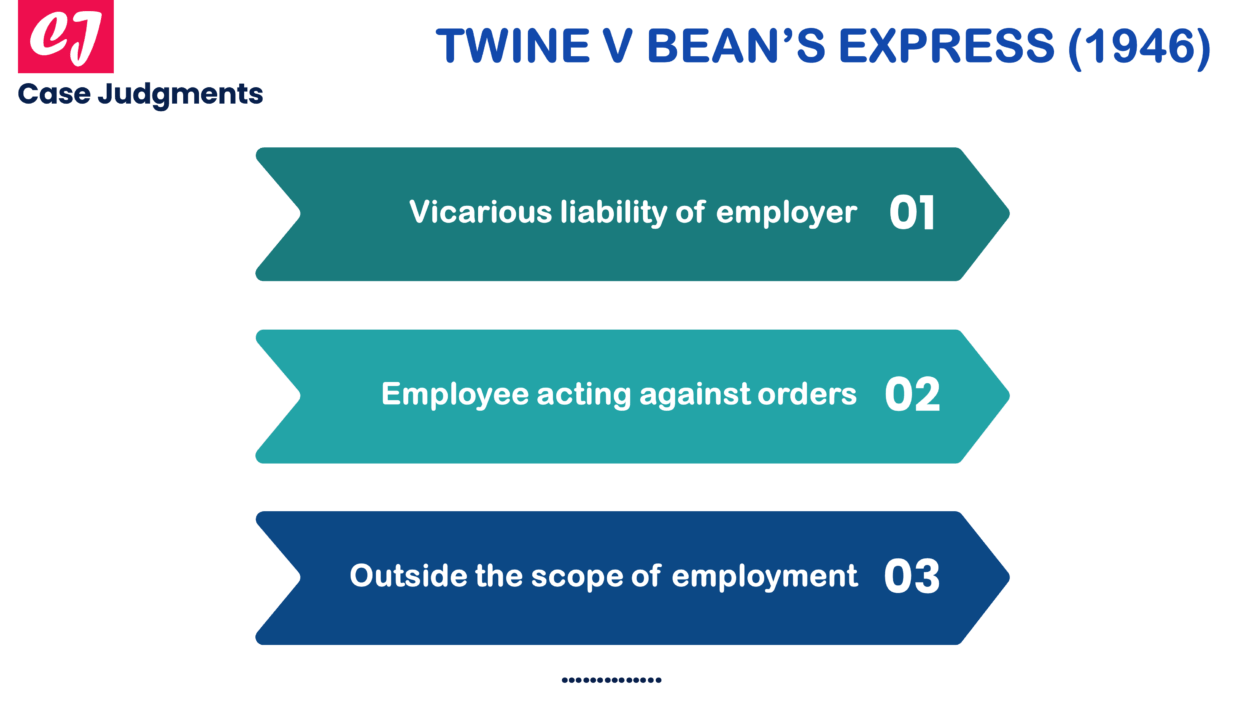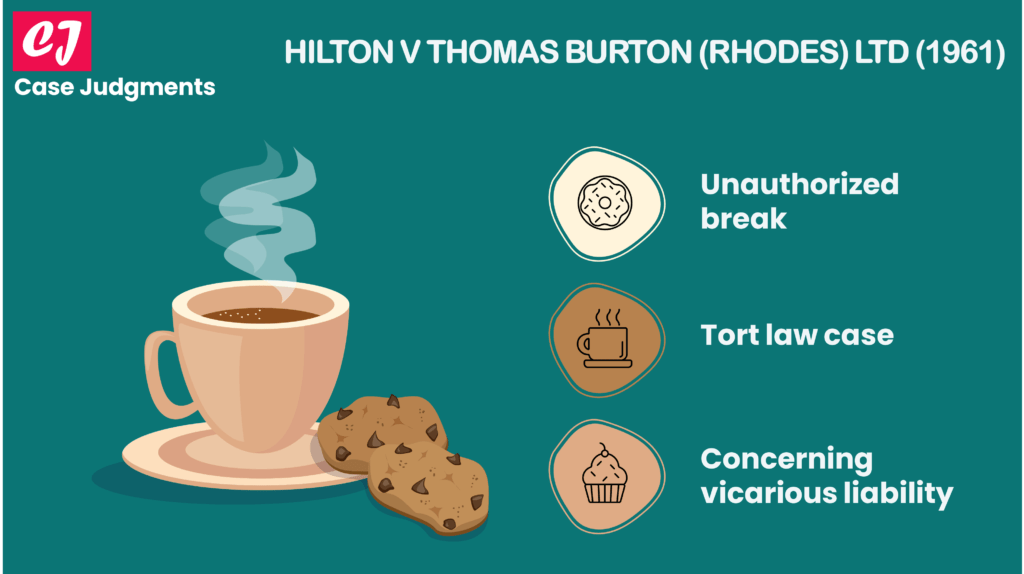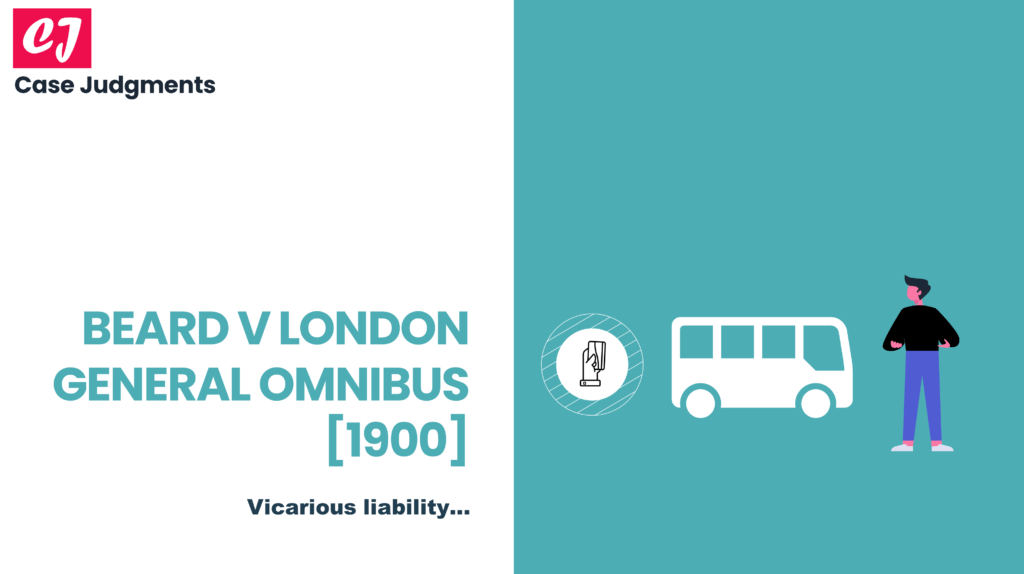
Twine v Bean’s Express Ltd (1946): A Case Summary
Case name & citation: Twine v Bean’s Express Ltd (1946) 62 T.L.R. 155; [1946] 1 All E.R. 202; (1946) 175 L.T. 131
Jurisdiction: England and Wales
Year of the case: 1946
Area of law: Vicarious liability; Employee acting against orders
What is the case about?
This case deals with the question of whether an employer can be vicariously held liable for the negligent acts of his employee carried out against the employer’s instructions.
Case facts (Twine v Bean’s Express Ltd)
A van driver was instructed not to give lifts to unauthorized persons and a notice to this effect was put up on the dashboard of the van. Despite this, he gave a lift to an unauthorized person. As a result of the driver’s negligence, the passenger died.
Issue
Could the employer be held liable for the driver’s negligence?
Judgment of the Court in Twine v Bean’s Express Ltd
It was held that because the employee was not acting in the course of his employment at the time of the accident, the employer was not held liable for the incident.
The driver was performing an unauthorized act, so he was acting outside the scope of his employment.
Evidently, the driver was not authorized to transport passengers (as mentioned in the notice). The transportation of such passengers was not in his employer’s best interest. It was not something that his employer had approved. It was not allowed to be done. Therefore, one cannot say that transporting such passengers was an act that was authorized by the employer or that was in the interest of the employer. The actions of the driver were not those of someone acting in the employer’s best interest but rather in the driver’s own best interest. The driver surpassed the boundaries of his job responsibilities.
A conflicting view
As regards prohibitions by employers and whether or not they can prevent an employer from being liable, the courts have taken conflicting views in some cases.
For example, consider the case of Rose v Plenty [1976]. Here, a milkman was instructed by his employer not to allow passengers on his float. He was also prohibited from employing children to assist him in delivering the milk. The milkman ignored the order and engaged the claimant, a 13-year-old boy, to assist him. The boy was injured due to the milkman’s negligent driving.
The employer was found to be vicariously liable by the court because the prohibition did not affect the job or duties that the milkman was required to do but rather the manner in which he should perform it. He was doing his job albeit in a manner his employer disapproved of.
That is, the milkman was acting within the course of his employment.
The difference between the cases Twine v Bean’s Express and Rose v Plenty is that in the former case, the court determined that the driver offered a lift, not for the purpose of doing something that would benefit the employer. Whereas in Rose v Plenty, the young boy was assisting in deliveries, thereby contributing to the business of the milkman’s employer.
Another case may also be seen.
In Limpus v London General Omnibus Co (1862), a bus driver was given written orders not to race or obstruct other buses. The driver disobeyed the order and while he was racing with another bus, a collision occurred. Despite disobeying the order, the court determined that the driver was acting in the course of his employment. It was believed that the driver was, though in an improper manner, promoting his employer’s passenger service business by seeking to disturb another bus.
List of references:
- http://www.nadr.co.uk/articles/published/sport/SportLecture007.pdf
- https://media.malawilii.org/files/judgments/mwhc/2018/1102/2018-mwhc-1102.pdf
You might also like:
More from tort law:

